How to heal from ACL knee surgery
(Last Updated On: )
I’ve you’ve been following this blog you know that I am once again recovering from ACL knee surgery. In fact, I’ve almost reached the 3 month mark. Being that this is my third ACL surgery, I’ve gathered some pretty good experience with ACL surgeries and recoveries. While all of my recoveries have been different, there are underlying themes that remain the same.
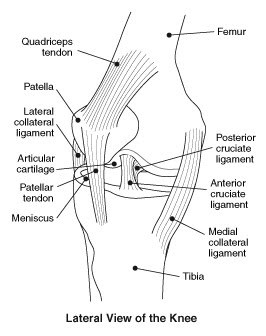 I sat on the couch, and my throbbed with pain. It was only a couple of weeks after my first ACL surgery nearly 20 years ago. I sat there, resting, with ice over my knee. Then, there was the ring-ring of the phone across the room. This was before cell phones were mainstream. I got up and hobbled over to answer it. My ski coach greeted me on the other end, asking how my knee was coming along.
I sat on the couch, and my throbbed with pain. It was only a couple of weeks after my first ACL surgery nearly 20 years ago. I sat there, resting, with ice over my knee. Then, there was the ring-ring of the phone across the room. This was before cell phones were mainstream. I got up and hobbled over to answer it. My ski coach greeted me on the other end, asking how my knee was coming along.
“It’s healing up. Every day is better than the last.”
“That’s good,” she replied. I sensed some hesitation. And then she just dove in.
“You know, they’ll have you skiing next year, 5 or 6 months after your surgery. But, you won’t be skiing like you want to.”
“What do you mean?”
“Well, it’s going to hurt, you’re not going to be skiing at the same level…. Really, it takes a year to recover.”
“Really?”
“Yeah, but don’t worry. Give it a full year and you’ll be back stronger than ever. Take some time next year to focus on technique, fine-tuning your skiing. You’ll be all the better for it. You’ll come back a stronger skier. But, it’s going to take a year.”
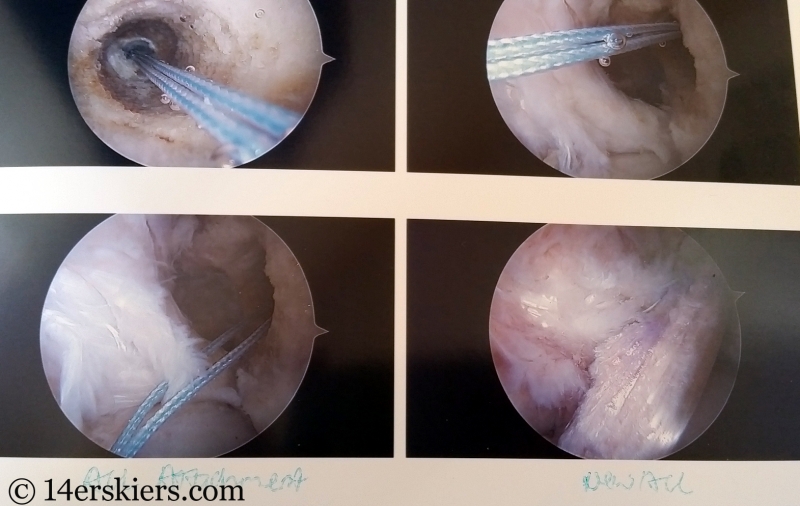
That was some of the best ACL recovery advice I received. So good that I remember it 20 years later. It saved me from some frustration. I mean, don’t get me wrong – of course I was frustrated that I couldn’t ski like I used to be able to. But, I was so glad my coach had explained to me that it was not going to last forever. I would be back. And stronger than before. I let healing run its course and stayed diligent with physical therapy and strength training. That first year I skied when I came back hurt like hell. She was right, I couldn’t ski at the same level as I had been, even though I struggled hard to do so. Admittedly, I didn’t want to believe that part. I wanted to be the exception. But, I wasn’t. So, I took the next step of her advice which was to fine-tune my skiing, taking time to work on skills that you don’t have time to work on when you’re competing every week. And then the following year, was my best year on skis that I’d had up to that point in my life. My coach’s advice was invaluable to my healing. Just a brief conversation had made all the difference.
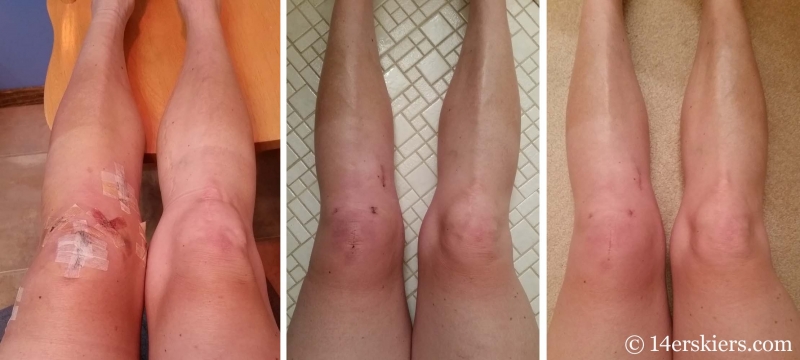
As it turns out, some of the best advice you can get about healing from an injury comes from those who have been through it themselves. If you’ve been following this blog you know that I am once again recovering from ACL knee surgery – my third one, in fact. Over the last two decades, I’ve gathered some pretty good experience with ACL surgeries and recoveries. While all of my recoveries have been different, there are underlying themes that remain the same. I’ve had to console dozens of people recovering from ACL reconstruction themselves, and have been thanked many times after. Unfortunately, it happens that I know a thing or two about this stuff. And, I guess it’s time I start sharing it more.
That’s the purpose behind this post. I want to help those who need help recovering from ACL reconstruction surgery. I’m not a professional doctor or physical therapist. I’m barely a professional athlete. So, you won’t find super technical details in this post. But healing is more than the details. There’s a “big picture” aspect to it. Furthermore, experience can go a long way and I want others to benefit from what I have learned. So, here’s some tips I’ve come up with for how to heal from ACL knee surgery.
- Get a good doctor – The first tip I have for healing from ACL surgery happens before the surgery even starts. As soon as you’ve found out you tore your ACL, you’ll likely want to get surgery to fix it as soon as possible. That’s human nature. You want to really begin your healing process and you feel like you can’t do that until you have the surgery to fix the problem. But, it’s better not to rush into your surgery. Instead, go visit other orthopedic doctors. Do your research and visit as many orthopedic surgeons as you can because no two doctors are alike. Each one will likely say something a little different than the last and you’ll learn more from every visit. Be as particular about searching for a doctor as you would searching for a spouse. Eventually, you’ll find the doctor that you want – who fits your needs from surgical technique to recovery. Remember that this repair will be with you for the rest of your life and when you’re in the surgery room your doctor may need to make some decisions about your surgery without being able to consult you. You want to be able to trust that your surgeon will make the right choices for you when you can’t. And remember, if your repair done wrong, you’ll have to go through the healing process all over again, and it will probably be harder the next time (trust me, I know this). So, don’t rush into surgery. Make sure you’ve found the surgeon who is right for you, and one you know will do a stellar job at fixing your knee.
- Do your research – Just like the first bit of advice, this one happens before you’ve even been touched by a scalpel. Not only should you research doctors, their experience, success rate, and patient approval, you should also research surgical technique. There are various options for grafts – allograft vs. autograft; and where to harvest the graft (typically done from hamstring tendon, patellar tendon, or quadriceps tendon if autograft). If it’s your second repair on the same knee, you’ll need to discuss “staging” – whether you need one surgery or two. And then there’s other possible damage to your knee such as a torn meniscus or cartilage. There are different approaches to all of these. Do your research to understand your options and make sure to ask each doctor you visit many questions. In fact, you should make a list.
- Be as strong as you can be before surgery – After you’re injured, it’s likely you’ll lose some strength and coordination. This happened to me for 2 of my 3 ACL tears. But being strong will aid in your recovery. So, while you’re researching and visiting orthopedic surgeons, also spend some time at physical therapy and get as strong as you can before you have your surgery.
- Watch out for the drugs – I’ve had 6 surgeries now and every single one they tried to force me to take post-op painkillers. I even had a nurse say I couldn’t leave the surgery center until I took a pain pill. I’ve taken them twice now post-surgery, only to lead to very negative results. Frankly, I’d rather be in pain than have all the horrible side-effects of the narcotic painkillers – nausea, vomiting, constipation. Other drugs, like the anti-nausea pills, make me have incredible dry mouth which made me want to vomit even more. And I even had one antibiotic make me dizzy as hell. Drugs will react differently for everyone. But, after a little too much experience, I’d say is better to take as few drugs as you can post-surgery. Remember that, during the surgery, you were given an insane amount of drugs. It will take your body a long time to flush that out of your system. It’s better to let your body flush the stuff out instead of loading it up with more unnecessary drugs. I don’t care what anyone says – you don’t need painkillers for knee surgery. I’ve done 3 knee surgeries without, and it’s just not that big of a deal. Suck it up, detach yourself from the pain. You will feel better not being all dizzy and drugged up. Long-term, you’ll probably want to take some sort of anti-inflammatory like naproxen or ibuprofen. But remember that NSAIDS like these can be harsh on your stomach and potentially cause ulcers, especially with long-term use. Take them with a decent amount of food. Or better yet, go herbal. I’m a fan of Zyflamend.
- Be mentally strong and stay positive – After surgery, you will be frustrated because normal every day tasks transform into epic event. Once that has passed, you’ll find your healing process will be filled with frustrations and set backs. But, be assured, this is all part of the long term healing process. Instead of focusing on the negative frustrations and setbacks, focus on what has gone right in your healing. Positivity can go a long way to helping the healing process. If you believe you are healing, you just may heal better and faster. Healing from ACL knee surgery is just as much a mental process as it is a physical one. Dig deep to find your inner strength that you didn’t know was really there. You’ll grow in the process. Stay strong, stay focused on healing, and keep moving forward – one day at a time.
- Find your support network – While healing requires that you delve into your own inner strength, you can’t do it alone. You will need to rely on others and each person you rely on will fill a certain niche. Support can come from your doctor and physical therapist. But some of your best support will be built from your friends and family and perhaps even a “recovery” buddy or two – people who are going through a similar recovery process. While you may feel like you need to be independent, don’t be afraid to lean on those who are in your support network. You need their support too and your recovery will be better as a result.
- Be patient – There will be times when you feel like you aren’t progressing enough. Healing is a long-term event. Be patient and you will heal. There will also be times when you’re knee may feel great and you’re wondering why you’re doctor or physical therapist says you cannot do something. Remember that your new ligament takes a long time to develop a good blood supply (some studies say a year or more) and until then, is more susceptible to rupturing. You need to give it time to heal before you put it at risk.
- Put in the time and energy to heal – Healing from knee surgery takes a long time. But your healing will go faster if you put in the time and energy to do so. For the first week or two, I have spent most of my time dedicated to healing and resting. After that, I’ve typically put in about 3-4 hours a day on healing for the next few months of my recovery. This includes stretching, physical therapy exercises, exercising in general, icing, and massage. Healing truly is a part-time job. Your body will reap the rewards if you put in the time and energy.
- Physical therapy / Exercise progression – Choosing a good physical therapist is as important as choosing a good surgeon. After all, you’ll probably be spending hours and hours with them. The best PT’s will modify your program as best they can to fit your needs. You will first start out doing heel slides and straight leg lifts. These will be so hard at first, but they will get better. You’ll be stoked to graduate from one level to the next. And before you know it, the stationary bike will be your best friend. Your physical therapist will be able to direct you best as to what exercises and movements you should or should not be doing. But there are also many other online resources, and even mobile apps that can help you. My favorite mobile app for ACL recovery is Curovate. However, apps like this should not take the place of your physical therapist. Use them as supplemental tools and realize that they have created a generic program. But, you are unique, and your progression may be different than the generics suggest. Here’s some helpful resources relating to ACL rehab: ACL Rehab Protocol by Dr Millett of the Steadman Clinic, ACL Rehab Protocol by University of Wisconsin Sports Medicine, ACL Protocol by Cosm Rehab.
- Don’t forget the rest of your body – You’ll spend so much time focusing on rehabing your knee that it’s easy to forget the rest of your body. But, don’t. If you keep other parts of your body strong, that will maintain a good metabolism to promote healing. While you may not be able to do all exercises, there are some you can do even in the early weeks of your recovery, especially with some tweaks. For example, I typically do my crunches on a fit ball, but since my my knee had to be non-weight bearing for a month due to a meniscus repair, I was still able to do crunches with my feet and calves on a coffee table or chair. I was able to do short arm workouts by lifting weights sitting down. Of course, all of this is within reason. Don’t do movements that can jeopardize your healing. Your physical therapist can help guide you if you have questions.
- Know your pain threshold – There’s a good chance that you’ll experience some pain during your physical therapy. Pain is a normal part of the healing process. But, there’s a fine line between pain and too much pain. To much pain can be harmful for your healing and can even cause more scar tissue to form. You need to learn the difference between pain that’s okay and pain that is not. Again, this is a good conversation to have with your physical therapist.
- Eat healthy – Your body cannot heal without proper nutrients. And fueling your body with nutrients can help speed the healing process. Reduce your consumption of alcohol as it can inhibit your absorption of valuable nutrients. Too many simple sugars can do the same thing as well as increase inflammation. At first, eat foods that help reduce inflammation. Then progress to a healing diet, especially one that promotes healing of the bones and connective tissue. Supplements can help such as a daily vitamin. Boosting your levels of calcium and vitamin D might be beneficial to you. ACL rehab patients may especially benefit from glucosamine, chondroitin, msm, and fish oil supplements.
- Listen to your body – There may be certain foods you crave or a movement/stretch that is particularly comforting to you. You may also have the urge to stretch or massage something that is bothering you a lot. Chances are, you’re body is trying to tell you what it needs. For example, I had this crazy craving to eat broccoli and yogurt, and this insane urge to keep stretching and massaging my quad. Unless you’re craving pounds of sugar or feel the urge to jump up and down or run around, you should probably listen to your body. At the same time, keep your mind opening to listening. Your body needs an open channel for it to be able to tell you what it truly needs.
- Talk to your knee – You’re probably thinking, “Really? This girl is cray-cray.” But, really, it works! Have a chat or two here and there with your knee. Tell it you’re healing together – it’s a team effort, praise it for suffering with you, and encourage it to keep healing. Picture your knee strong again, and what you will do when it is. This will send healing vibes throughout your body. Trust me, as crazy as it sounds, it works!
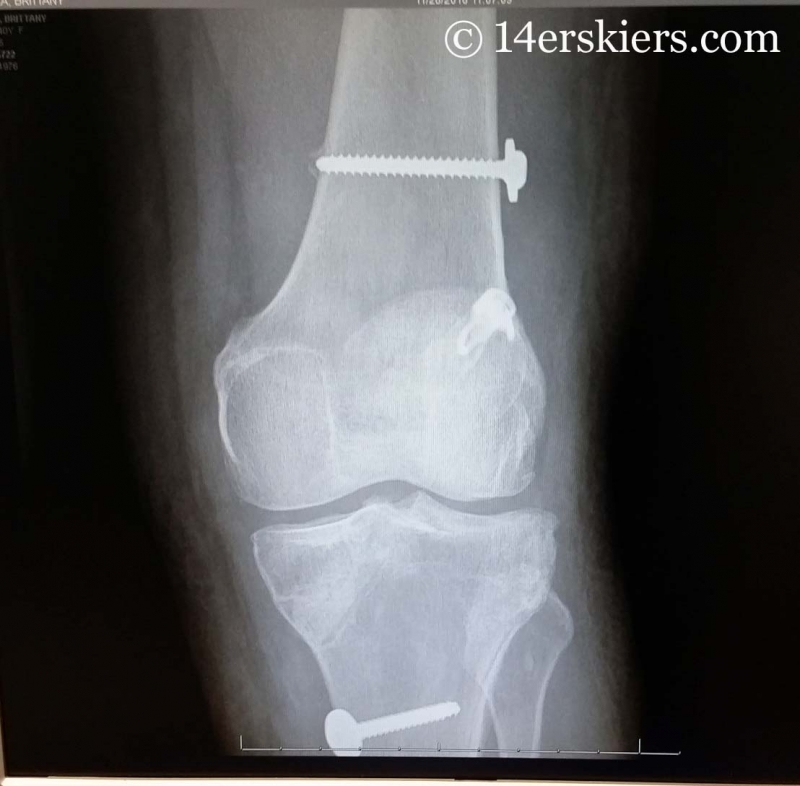
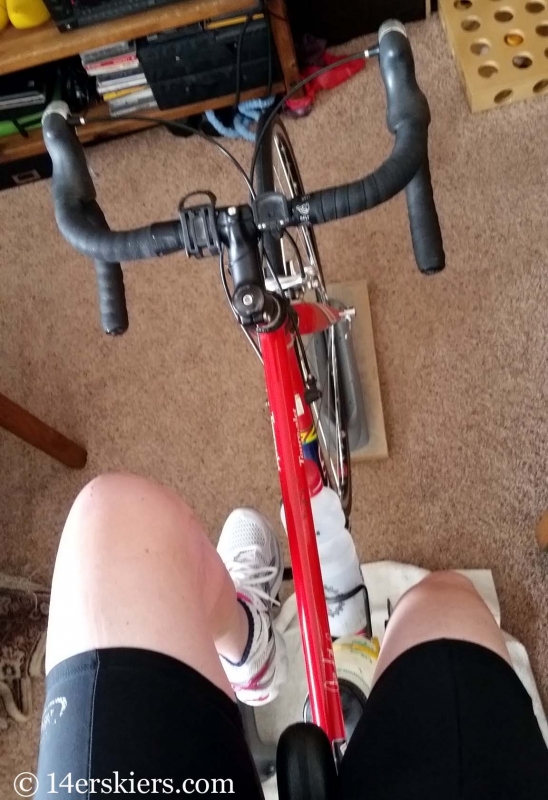
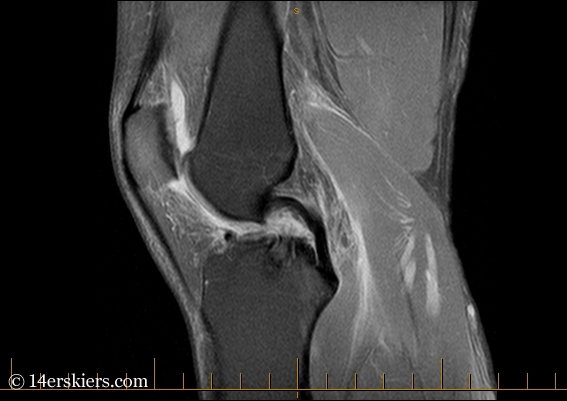
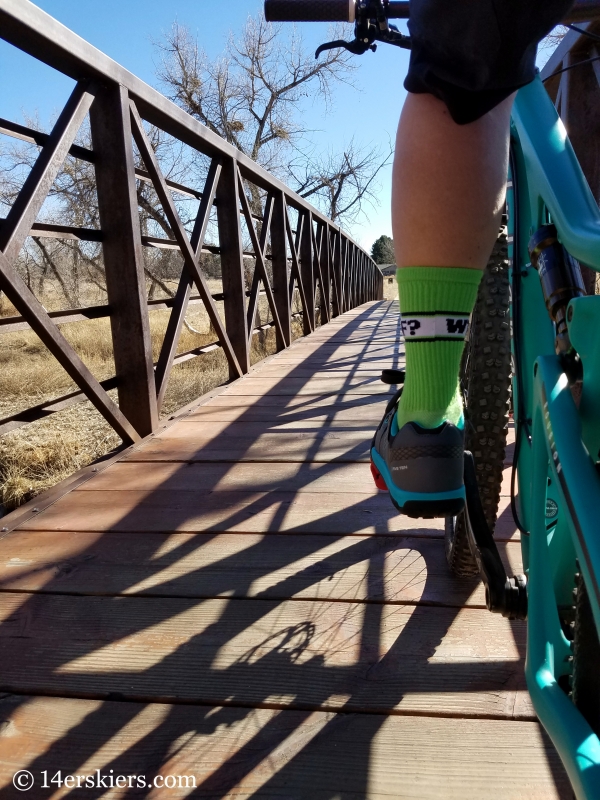
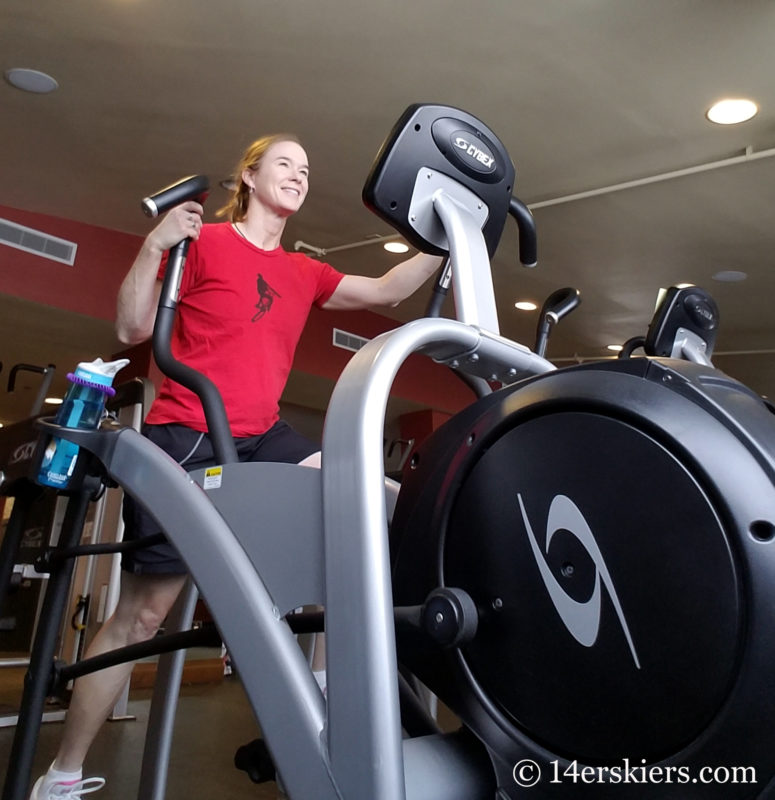
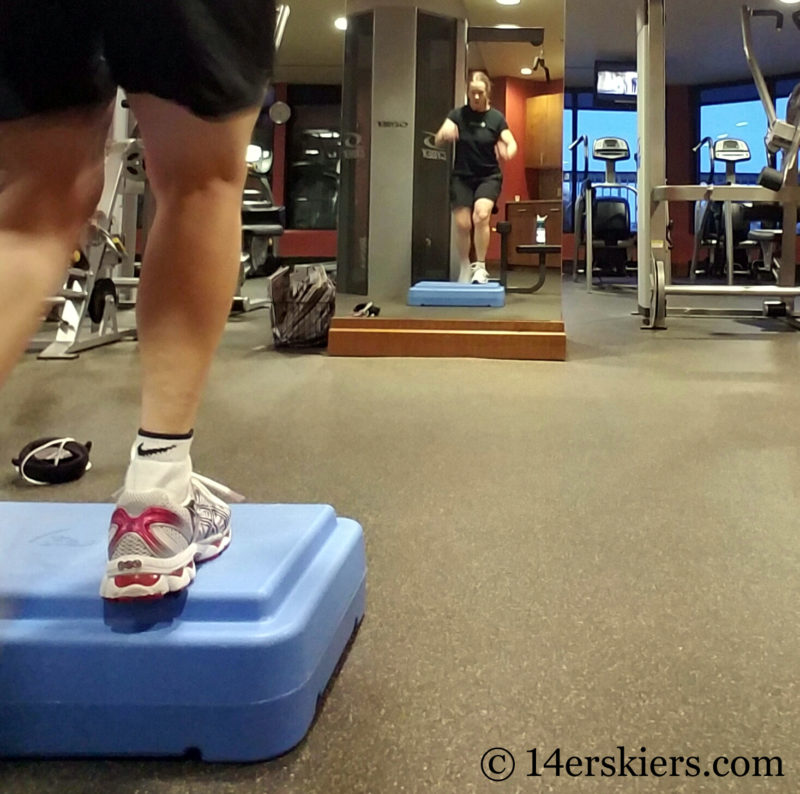
So, those are some tips that can help you heal from ACL knee surgery. If you’ve recovered from ACL surgery yourself, do you have anything else you would like to add?
- Mount Buckskin (17 May 2020) - May 28, 2020
- Horseshoe Ski (14 May 2020) – The mountain whose journey nearly killed me - May 27, 2020
- Sayres X-Rated Ski (10 May 2020) - May 19, 2020
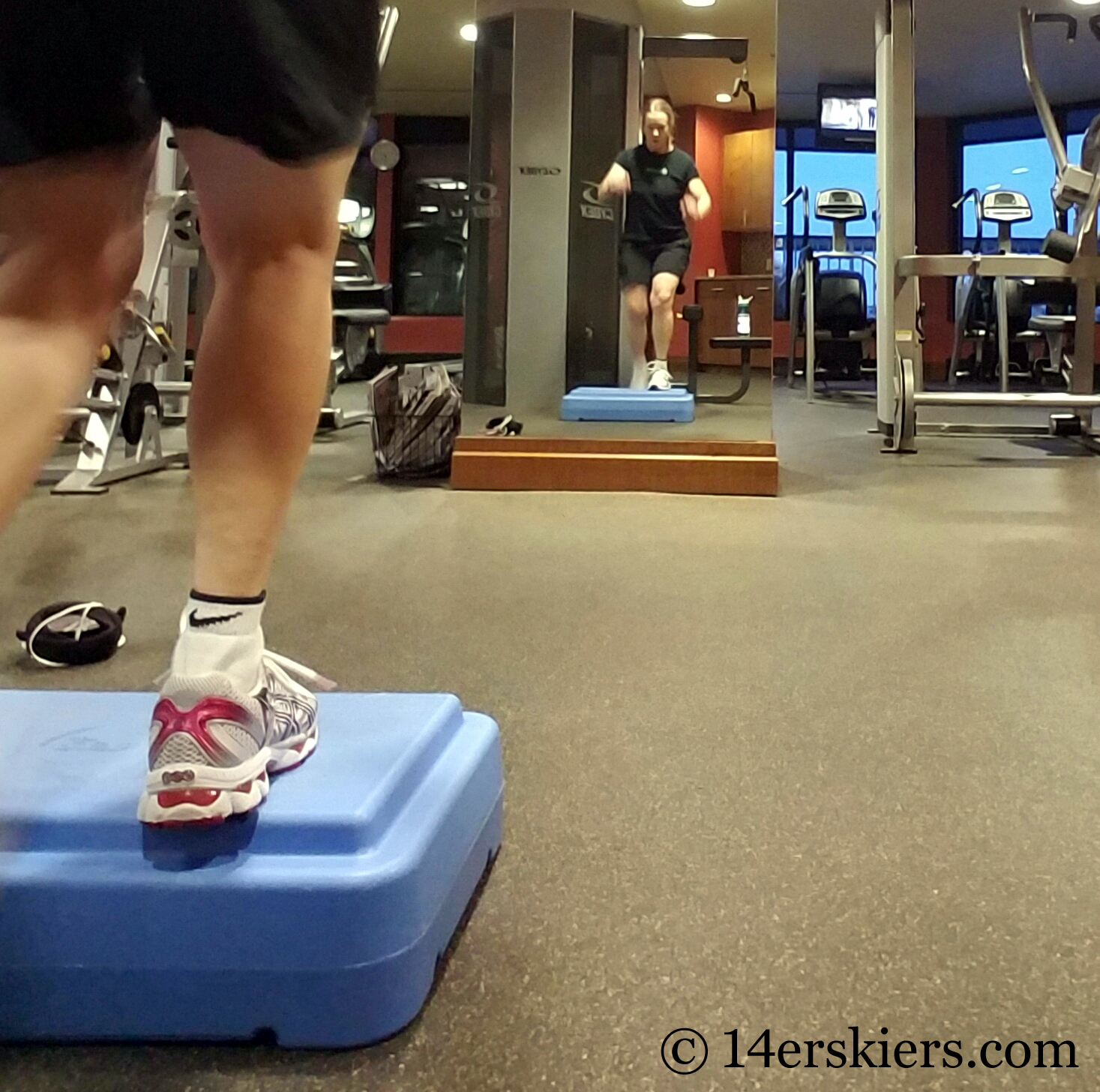

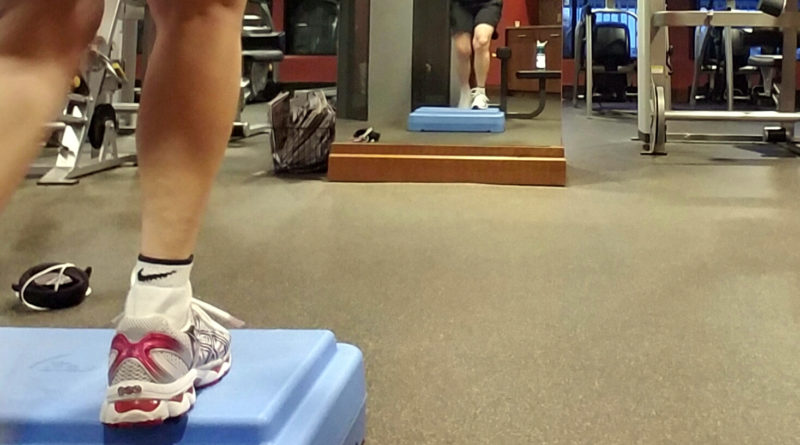
Excellent tips! I found especially that “getting strong before surgery” helped me a lot when I had to do my ACL reconstruction. And the good physio, since you’ll be spending hours and hours with them!
Thanks Erika! Anything else you would add?
Great article. I thought a while before responding, but decided I should. I am also 6 surgeries down on my knees, the most recent being a month ago with a total knee replacement. Now while I managed to escape the opioids pretty quickly with meniscus tears, the realignment of my patellas and my recent knee replacement are an order of magnitude more invasive and I would suggest trying to avoid serious amount of pain management proves you are either way tougher than me or naive. This is especially true with replacement where there is a very short period during which restoring range of motion is possible; pain management enable aggressive Physiotherapy. I have managed to dramatically reduce the insane amount of meds I was on, but I am guessing I am at least a week away from being clean! And if you have issues with opioids, I would suggest a very serious discussion with your medical professionals before surgery to understand options; I am not sure how I would have handled the last 4 weeks without my pain killers. I guess what I am saying is that however much I dislike their side effects, they are an important part in your recovery and should not be dismissed as unnecessary.
Hi Paul. Thanks for your comments! I assure you I am not naive. I have gone through 4 knee surgeries now, and have watched many a friend go through the same. Pain is tolerated differently by everyone. Generally, I don’t find knee surgery to be very painful, compared to some other things like having 2 herniated discs in my back. And many others don’t find knee surgery very painful either. My friend Anna just had the same surgery as me and did not need to use pain killers either. That said, the type of surgery seems to have an impact. When I used my patellar tendon as a graft for my first ACL, that was painful. Bone graft surgery, allograft ACL, and quad graft ACL weren’t very painful at all (However, I have never had a knee replacement which I could see as being painful). Whatever pain I did feel was not nearly worth the side affects of the pain killers, since they affected me so adversely. I have never had pain deter me from doing standard PT exercises. I rely on NSAIDS, ice and elevation to minimize my pain. But, narcotics can if I am vomiting every hour or can’t even function. For me, I’d rather be in pain than unfunctional, vomiting, nauseous, and constipated. Many others feel the same. I have always had discussions about this with my surgeons, given that I react so adversely to narcotics. And they do things to reduce the need for narcotics, like nerve blocks. I see what you’re saying that narcotics can be important for some who are sensitive to pain. But, I would like to see western medicine offer alternatives before rushing to hand out an extremely addictive substance with very bad side effects like candy. I think for many people, the narcotic painkillers are simply not necessary. And even if they are, a patient could typically get by with 2 or 3 pills, not 20.
Thanks for the article, really enjoyed reading it. I am going through ACL-R rehab at the moment – one month out from surgery with about 100 deg knee flexion and currently re-learning how to walk properly!
On the pain medication issue, from what I have read and been told the main benefit of the meds is in mitigating the neuromuscular inhibition that comes after the surgery. The argument goes that the inability to contract the muscles properly after the surgery is partially due to the pain which the body is experiencing as part of its need to protect the knee from any movement. So taking painkillers is meant to speed up the rate at which you regain the ability to contract your muscles. When I woke up from surgery still with the local anaesthetic in the knee I was able to contract the quad 100% without any problems!
I’d be interested to hear how you found progress regaining range of motion and muscle activation without the painkillers? Personally I took paracetamol and ibuprofen for about a week and then stopped.
Hi Harry. Thankso for your comment. I did take Naprosyn but not any of the narcotic pain meds. My ROM has has always come back pretty fast. I believe I was at 100% in 3 weeks. I could fire my quad always, but pain on my graft site prevented me from doing straight leg raises for the first week. I have never heard of pain meds bring used to suppress muscle movement. I have actually heard the opposite – they recommend them so that you can do your physical therapy. I have also always been told to start working ROM even on the first day after surgery in all three knee surgeries I had. In fact, for my first one, they kept me in the hospital overnight and put my leg in a machine which kept the knee moving forward 12 hours straight, right out of knee surgery….. it was painful so they put me on morphine but that made me dizzy and I puked within minutes of every dose.
Thank you so much for this Brittany! I’m a week out of my knee surgery (ACL reconstruction with quad graft, small lateral meniscus tear, and an MCL sprain). I, like you, injured it while skiing. Been an athlete since I was 8, so this has been a massive eye opener for me to have injured it recreationally after decades of competitive sports. Been spending a lot of time looking for a first hand account of a quad graft reconstruction, how to take each week, and what to look forward to. This is so incredibly helpful (especially since you had the same graft as me). My ROM is going to take a bit longer to progress because of the MCL sprain – but I dedicated myself to PT this past week and was able to complete the week with 40 SLRs and walking with minor reliance on the crutches. 🙂 I’ll keep coming back to your article for inspiration over the coming months. Thank you again!!!
So glad you find these posts helpful! Feel free to contact me if you have questions!
So…I lived with a ruptured ACL and torn meniscus for 8 years…until one day…one more injury and it locked up. I had to wait 4 weeks for surgery…no pre-hab :/. I am 59…a farmer…very active…can’t sit still…but getting frustrated that I am not moving fast enough. I did get on a bike this week…but I am not able to straighten the leg like I think it should be straightened. Your blog has encouraged me…I will continue on and start talking to my knee :). I knew this would be a long haul…but your words will help me along the way. Thank you.
So glad you have found the information useful Carol! Recovery is a part time job, at a minimum. So, invest the time you need to your recovery, especially getting that knee to go straight, and it will all pay off in the end. Patience is key, though certainly frustrating! Good luck!
Oh Brittany…I needed that confirmation. I commented to you before I read about your accident. You have been on my heart and will stay there!! I need to read your updates…I hope you are healing at record pace!